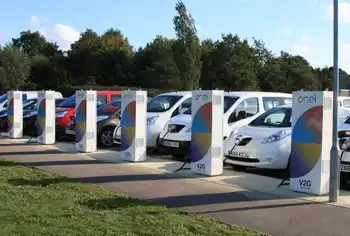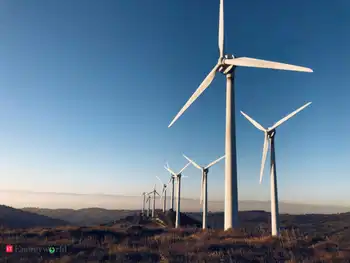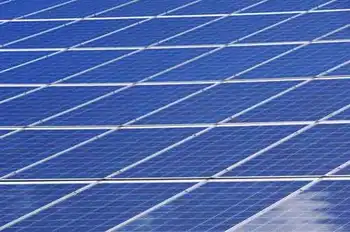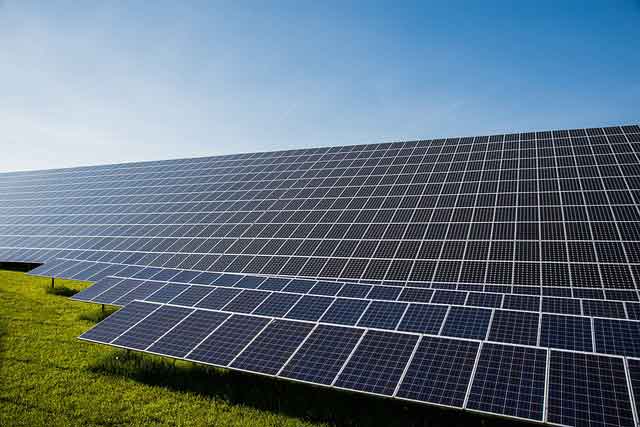Quebec Energy Bill Tariff Delay disrupts Canada-U.S. trade, renewable energy investment, hydroelectric expansion, and clean technology projects, as Trump tariffs on aluminum and steel raise costs, threatening climate targets and green infrastructure timelines.
Key Points
A policy pause in Quebec from U.S. tariff threats, disrupting clean investment, hydro expansion, and climate targets.
✅ Tariff risk inflates aluminum and steel project costs.
✅ Quebec delays clean energy legislation amid trade uncertainty.
✅ Hydroelectric reliance complicates emissions reduction timelines.
The Trump administration's tariff threat has had a significant impact on Quebec's energy sector, with tariff threats boosting support for projects even as the uncertainty resulted in the delay of a critical energy bill. Originally introduced to streamline energy development and tackle climate change, the bill was meant to help transition Quebec towards greener alternatives while fostering economic growth. However, the U.S. threat to impose tariffs on Canadian goods, including energy products, introduced a wave of uncertainty that led to a pause in the bill's legislative process.
Quebec’s energy bill had ambitious goals of transitioning to renewable sources like wind, solar, and hydroelectric power. It sought to support investments in clean technologies and the expansion of the province's clean energy infrastructure, as the U.S. demand for Canadian green power continues to grow across the border. Moreover, it emphasized the reduction of carbon emissions, an important step towards meeting Quebec's climate targets. At its core, the bill aimed to position the province as a leader in green energy development in Canada and globally.
The interruption caused by President Donald Trump's tariff rhetoric has, however, cast a shadow over the legislation. Tariffs, if enacted, would disproportionately affect Canada's energy exports, with electricity exports at risk under growing tensions, particularly in sectors like aluminum and steel, which are integral to energy infrastructure development. These tariffs could increase the cost of energy-related projects, thereby hindering Quebec's ability to achieve its renewable energy goals and reduce carbon emissions in a timely manner.
The tariff threat was seen as a part of the broader trade tensions between the U.S. and Canada, a continuation of the trade war that had escalated under Trump’s presidency. In this context, the Quebec government was forced to reconsider its legislative priorities, with policymakers citing concerns over the potential long-term consequences on the energy industry, as leaders elsewhere threatened to cut U.S.-bound electricity to exert leverage. With the uncertainty around tariffs and trade relations, the government opted to delay the bill until the geopolitical situation stabilized.
This delay underscores the vulnerability of Quebec’s energy agenda to external pressures. While the provincial government had set its sights on an ambitious green energy future, it now faces significant challenges in ensuring that its projects remain economically viable under the cloud of potential tariffs, even as experts warn against curbing Quebec's exports during the dispute. The delay in the energy bill also reflects broader challenges faced by the Canadian energy sector, which is highly integrated with the U.S. market.
The situation is further complicated by the province's reliance on hydroelectric power, a cornerstone of its energy strategy that supplies markets like New York, where tariffs could spike New York energy prices if cross-border flows are disrupted. While hydroelectric power is a clean and renewable source of energy, there are concerns about the environmental impact of large-scale dams, and these concerns have been growing in recent years. The tariff threat may prompt a reevaluation of Quebec’s energy mix and force the government to balance its environmental goals with economic realities.
The potential imposition of tariffs also raises questions about the future of North American energy cooperation. Historically, Canada and the U.S. have enjoyed a symbiotic energy relationship, with significant energy trade flowing across the border. The energy bill in Quebec was designed with the understanding that cross-border energy trade would continue to thrive. The Trump administration's tariff threat, however, casts doubt on this stability, forcing Quebec lawmakers to reconsider how they proceed with energy policy in a more uncertain trade environment.
Looking forward, Quebec's energy sector will likely need to adjust its strategies to account for the possibility of tariffs, while still pushing for a sustainable energy future, especially if Biden outlook for Canada's energy proves more favorable for the sector in the medium term. It may also open the door for deeper discussions about diversification, both in terms of energy sources and trade partnerships, as Quebec seeks to mitigate the impact of external threats. The delay in the energy bill, though unfortunate, may serve as a wake-up call for Canadian lawmakers to rethink how they balance environmental goals with global trade realities.
Ultimately, the Trump tariff threat highlights the delicate balance between regional energy ambitions and international trade dynamics. For Quebec, the delay in the energy bill could prove to be a pivotal moment in shaping the future of its energy policy.
Related News












